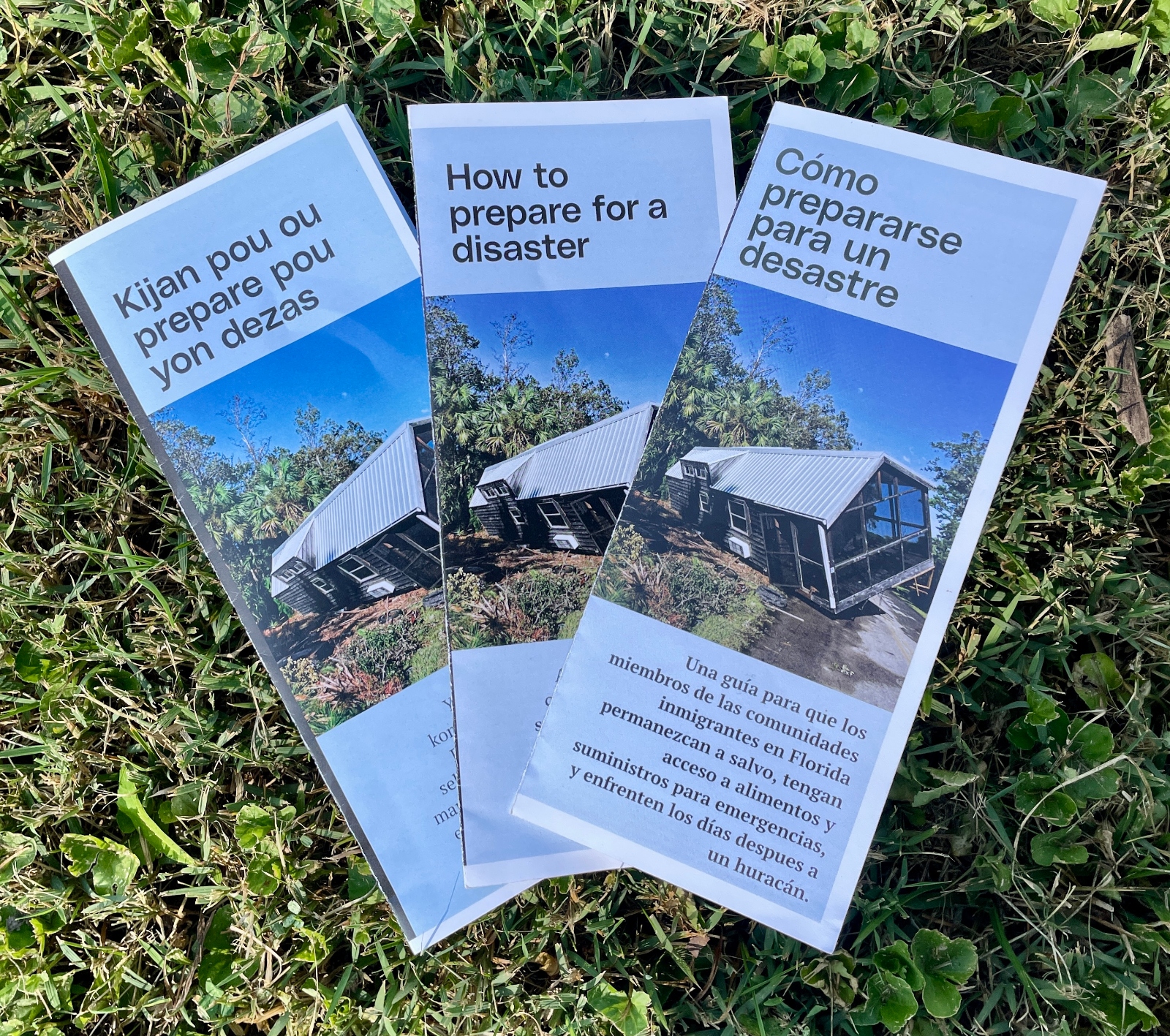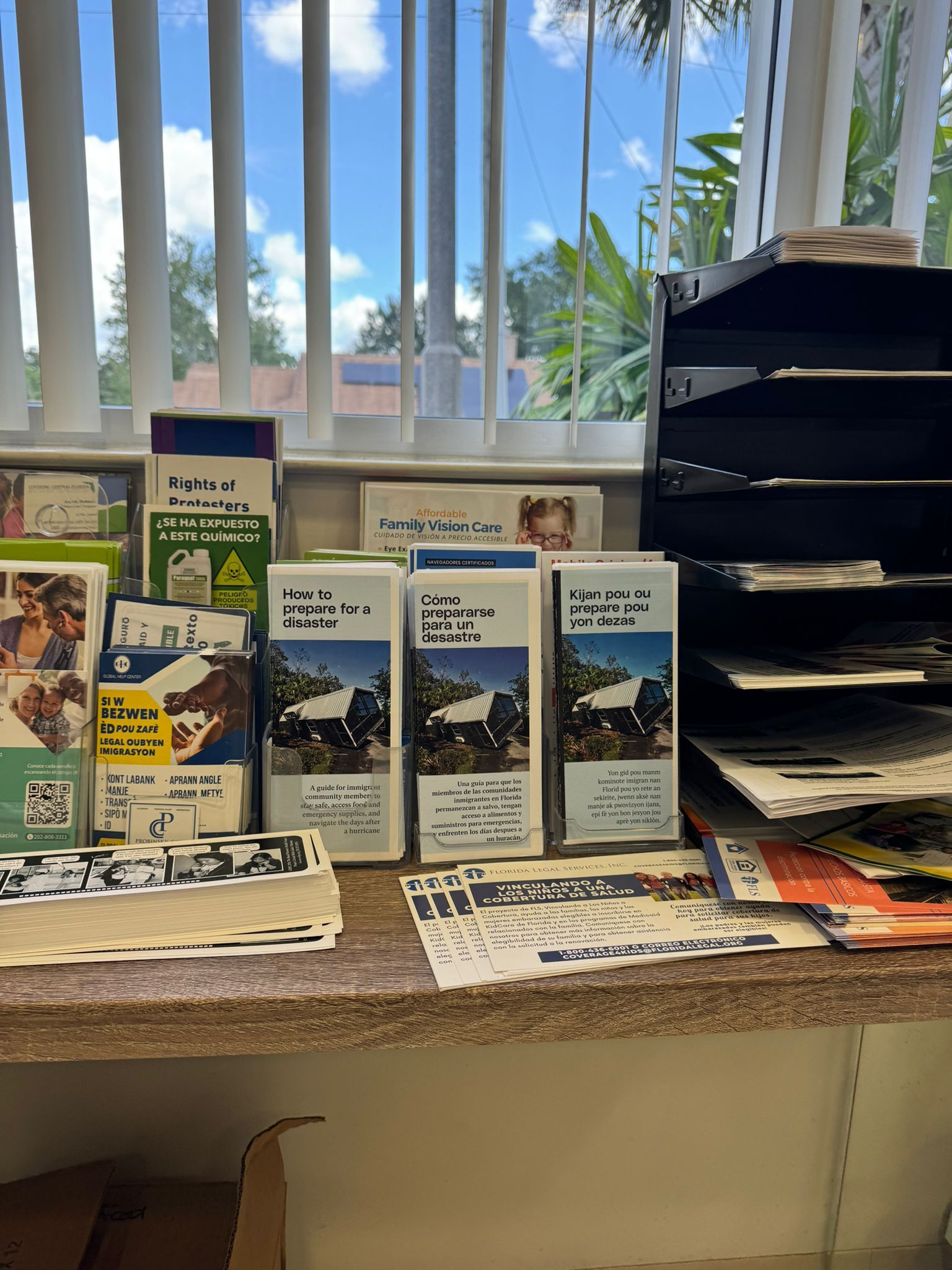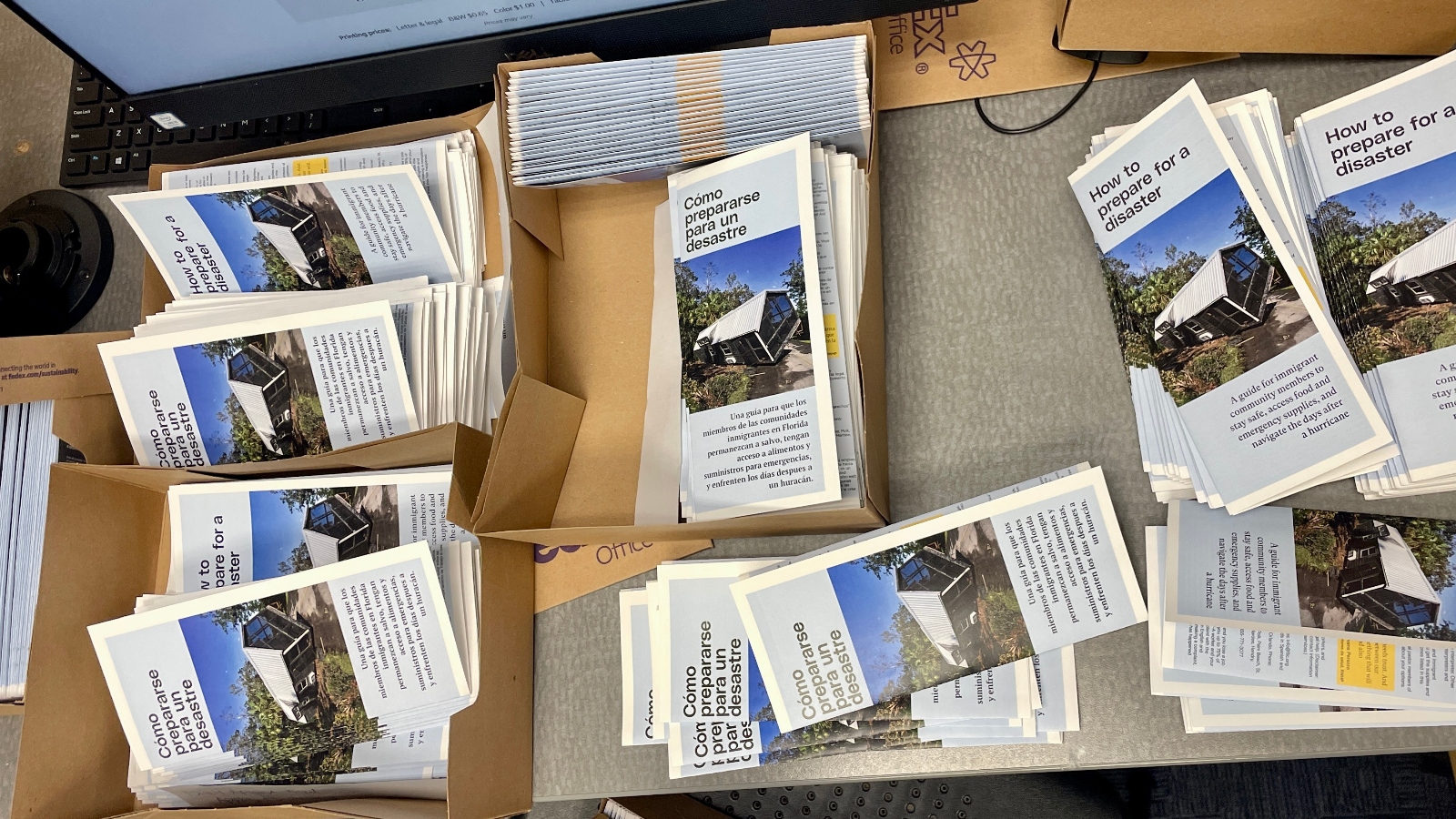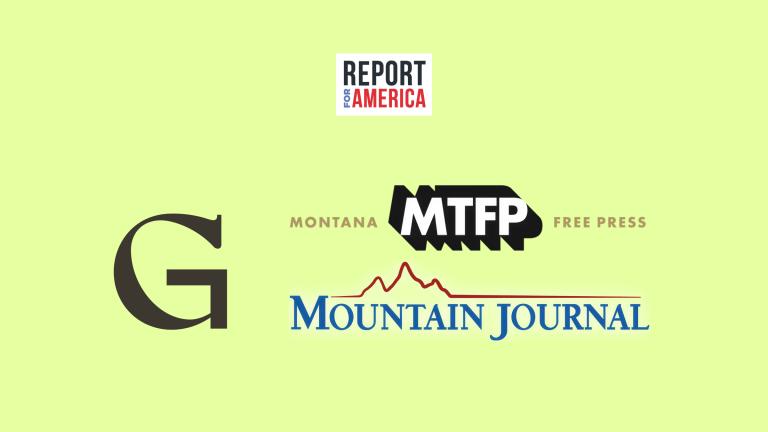This summer, Grist published several stories about farmworkers facing extreme weather events, including heat waves and hurricanes. Ayurella Horn-Muller, Grist’s Florida-based food and agriculture reporter, examined how climate change exacerbates the hurdles farmworkers face in accessing food, as well as how this population is largely overlooked by federal, state, and local emergency response efforts.
In order to ensure this reporting reaches the communities it focuses on and that need it most, Senior Manager of Community Engagement Lyndsey Gilpin worked with Horn-Muller to create guides for farmworkers and immigrant community members across Florida. The guides included critical information about food access, disaster preparedness, and immigrants’ rights.
Gilpin held two conversations over Zoom: one, in English, with a researcher and several representatives from farmworker advocacy organizations in Florida; and another, in Spanish, with two community health workers, or promotores de salud, who often work with farmworkers. They discussed their challenges in distributing information to people, and asked what resources Grist could create with our reporting so farmworkers and their families can access useful, timely facts during peak hurricane season.

This guide was translated into Spanish and Haitian Creole, two languages spoken most often by farmworkers in Florida. Below are the digital versions, which are being distributed via WhatsApp and social media.
Gilpin printed 1,300 brochures in all three languages and mailed them to five Farmworker Association of Florida offices across the state, as well as the Rural Women’s Health Project, a nonprofit organization that offers community-based health education in rural north Florida. These brochures are being distributed to workers and their families at local disaster preparedness and food distribution events. Sonia Ramirez did the translations into Spanish, and the Lantana Collective translated them into Haitian Creole.

Horn-Muller’s reporting was translated into Spanish (available here and here). Grist also co-published one of the stories, on food security among farmworkers, with Modern Farmer in English and with newspaper El País in Spanish in an effort to attract the widest audience possible. The story was syndicated by a local publication of one of the communities in the story, the Apopka Voice, as well as Eater, Gizmodo, Salon, Investigate Midwest, The Emancipator, and The Invading Sea. Horn-Muller also spoke about the story on NPR’s Here and Now, as part of its weekly partnership with Grist.
This is not the only disaster-related community engagement project for Grist in 2024: The newsroom has created guides for readers on disaster preparedness and how to vote absentee or in-person in case an extreme weather event strikes their area.
Read them here:
Your guide to voting after a disaster
Extreme weather 101: Your guide to staying prepared and informed




